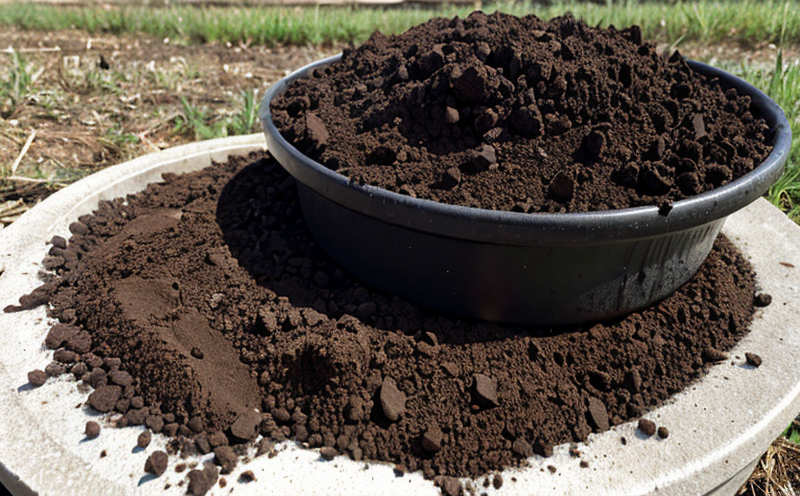ISO 23400 Toxic Compounds in Leachate Residues
The ISO 23400 standard is pivotal in ensuring that leachate residues from waste management do not pose a threat to the environment. This service involves comprehensive testing of toxic compounds present within these residues, particularly focusing on heavy metals and other harmful substances. Compliance with this standard ensures that landfills and recycling processes are safe for both human health and ecological balance.
Leachate is a byproduct generated from waste materials in landfills or recycling facilities. It contains dissolved materials derived from the breakdown of organic matter, which can include various toxic compounds such as heavy metals, pesticides, and other hazardous substances. The ISO 23400 standard provides stringent guidelines for measuring these compounds to ensure they do not exceed safe levels.
Our laboratory specializes in conducting thorough analyses using advanced instrumentation like Inductively Coupled Plasma Mass Spectrometry (ICP-MS) and High Performance Liquid Chromatography (HPLC). These methods allow us to detect even minute traces of toxic compounds, ensuring precision and reliability in our test results.
The testing process begins with the collection of representative samples from leachate residues. Specimen preparation involves filtering the sample through fine mesh filters to remove solid particles. Once prepared, these samples undergo rigorous analysis according to ISO 23400 protocols. The results provide detailed information on the presence and concentration levels of various toxic compounds.
The importance of this testing cannot be overstated. It directly impacts environmental protection efforts by ensuring that waste management practices are sustainable and safe. By adhering to strict standards, we contribute significantly to reducing pollution risks associated with leachate residues.
Furthermore, the data obtained from these tests plays a crucial role in regulatory compliance and risk assessment. Regulatory bodies often mandate such analyses as part of environmental impact assessments. This information helps stakeholders make informed decisions regarding waste treatment methods and disposal strategies.
Applied Standards
The ISO 23400 standard is widely recognized for its comprehensive approach to assessing toxic compounds in leachate residues. It aligns with other international standards such as ASTM D7819 and EN 15676, ensuring consistency across different regions and industries.
ASTM D7819 provides additional guidance on sampling techniques for hazardous waste streams, while EN 15676 focuses on the quantification of certain organic compounds in leachate. Together, these standards form a robust framework that supports accurate and reliable testing procedures.
Incorporating multiple international standards ensures that our laboratory remains at the forefront of industry best practices. By adhering to these guidelines, we maintain high levels of accuracy and precision in all our tests. This approach also enhances credibility among clients seeking assurance about their compliance status with global regulations.
Environmental and Sustainability Contributions
Our commitment to testing leachate residues according to ISO 23400 goes beyond mere compliance; it contributes positively to environmental sustainability. By identifying toxic compounds early on, we enable waste management facilities to take proactive measures to mitigate potential risks.
This proactive stance helps prevent contamination of nearby water sources and ecosystems, fostering healthier environments for all living beings. Additionally, our services support circular economy principles by promoting responsible resource use through informed decision-making processes based on accurate test results.
Through consistent adherence to ISO 23400 standards, we play an integral role in advancing sustainable development goals related to waste management and recycling. This commitment reflects our dedication to creating a more environmentally conscious future.
Competitive Advantage and Market Impact
Offering ISO 23400 toxic compound testing in leachate residues provides several competitive advantages for businesses operating within the waste management sector. Firstly, it enhances reputation by demonstrating a strong commitment to environmental stewardship.
Secondly, having up-to-date and accurate test results can lead to better-informed strategic planning regarding waste handling practices. Thirdly, compliance with international standards opens doors to broader markets where stringent regulatory requirements apply.
The ability to provide reliable data on toxic compounds not only meets current legal obligations but also positions companies ahead of future regulations. It ensures they remain competitive in an increasingly environmentally aware marketplace.





